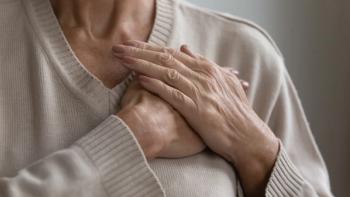
Most of the US population—nearly 80%—endorse spiritual and/or religious beliefs. How can these beliefs be applied to psychiatry?

Dr Lavretsky is a professor in residence in the Department of Psychiatry at the University of California, Los Angeles. She is president of the American Association for Geriatric Psychiatry, a distinguished fellow of the American Psychiatric Association and the American Association for Geriatric Psychiatry, and a fellow of the American College of Neuropsychopharmacology. She is also on the Editorial Board of Psychiatric Times.

Most of the US population—nearly 80%—endorse spiritual and/or religious beliefs. How can these beliefs be applied to psychiatry?

Resilience: how does it improve overall health? Helen Lavretsky, MD, shared her thoughts at the 2025 APA Annual Meeting.
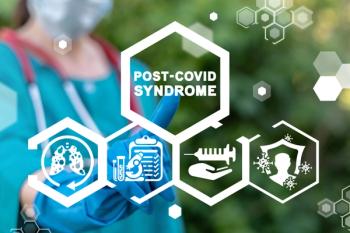
In this CME article, learn more about the common neuropsychiatric sequelae of post-acute sequelae of COVID-19, the underlying neurobiological mechanisms, and evidence-based treatments and interventions.

What effects do lifestyle factors have on brain aging and neuropsychiatic symptoms?

Clinicians should carefully weigh the risks and benefits of each prescribed medication for an older adult with neuropsychiatric diseases and periodically review all prescribed medications. Learn more here.
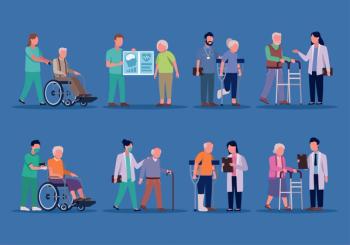
Advocating for the human rights of your older patients is an important part of clinical geriatric psychiatry. Learn more in this APA Annual Meeting session!

Clinicians must feel knowledgeable and masterful in incorporating lifestyle and integrative therapies targeting nutrition, stress reduction, normalization of sleep, aerobic and mindful exercise, and meaningful activities that add joy and life to years, and not just years to life.


What is the most hopeful holiday around the world—and why is it more important this year than ever?

Beyond the COVID-19-driven shock, we must develop a resilient future in an increasingly uncertain world.

"Rooted in ancient meditative traditions, mind-body practices can offer simple and scalable tools of self-regulation that incorporate controlled paced breathing, which is therapeutic in alleviating symptoms of stress, anxiety, depression, and chronic pain disorders."

What are the Psychiatric Times™ Editorial Board Members talking about at the 2022 APA Annual Meeting in New Orleans?

What are the current dosing guidelines for the implementation of pharmacogenetics into practice?

Remembering Lissy Jarvik, MD, PhD—a pioneer of geriatric neuropsychiatry.
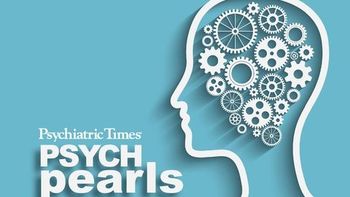
Although the new drug aducanumab has grabbed all the headlines, the future of Alzheimer treatment may be just as much about public health campaigns as it is about psychopharmacology. In this episode of Psych Pearls, we find out why.

The world is facing a cognition crisis. Here’s how to face it with measurement-based cognitive care.
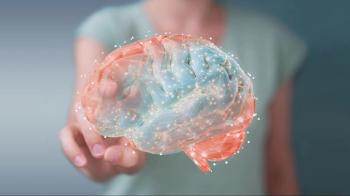
How can we face the current pandemic while addressing the brain health crisis?

This mindset might be the key to mental health breakthroughs.

Dr Lavretsky invites us to use the pandemic as a chance to build good habits, explore spiritual avenues, and start new routines.

A paradigm shift is needed in order to solve the unprecedented complexities and challenges associated with the current global mental health crisis.

Society’s psychological reactions to a crisis can be predicted according to disaster response frameworks, which can be used to understand what to build during the evolving COVID-19 crisis, and when those innovations will prove most vital.

This Special Report on Geriatric Psychiatry addresses a variety of clinical issues in the rapidly growing diverse population of older adults.

In this pilot study, older adults who practiced yoga did better on measures of verbal and visual memory and executive function than those in memory training classes.
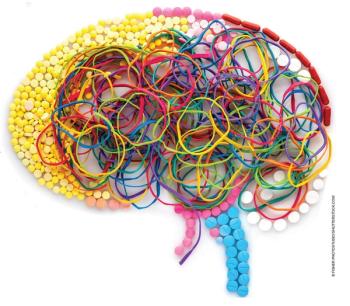
Here: a look at several natural products used to improve cognitive impairment or cognitive symptoms of dementia.

The latest updates in geriatric psychiatry.

This article sheds light on the strengths and weaknesses of various approaches to TRD management in adults 60 years and older.
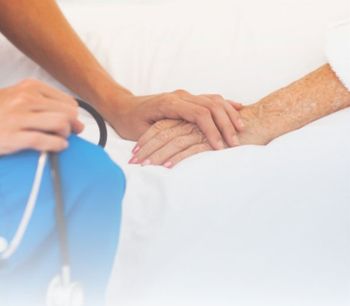
Therapeutic techniques can enhance psychological resilience and may help patients improve their quality of life. Here's how.

The Medici effect is upon us in biomedicine, and it’s called convergence science.

Comorbid medical symptoms, polypharmacy, and cognitive decline are hallmarks of depression in the fastest growing segment of the population.
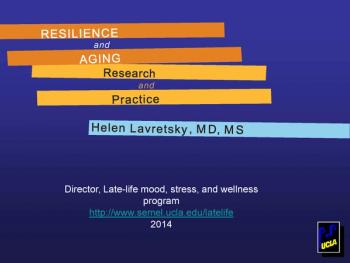
An expert talks briefly about interventions that can help bolster resilience and help older people recover quickly from adversity.
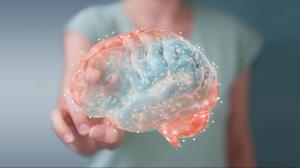
Published: May 14th 2021 | Updated:
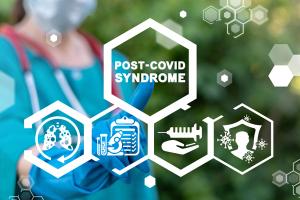
Published: March 28th 2025 | Updated:

Published: March 8th 2022 | Updated:

Published: May 19th 2025 | Updated:
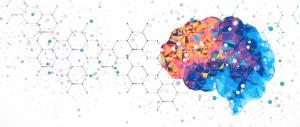
Published: October 26th 2022 | Updated:

Published: October 20th 2022 | Updated: